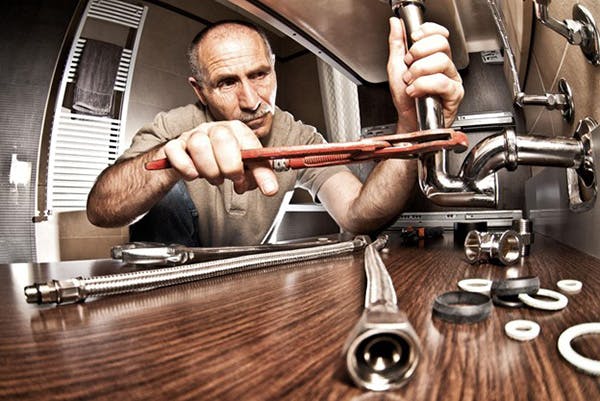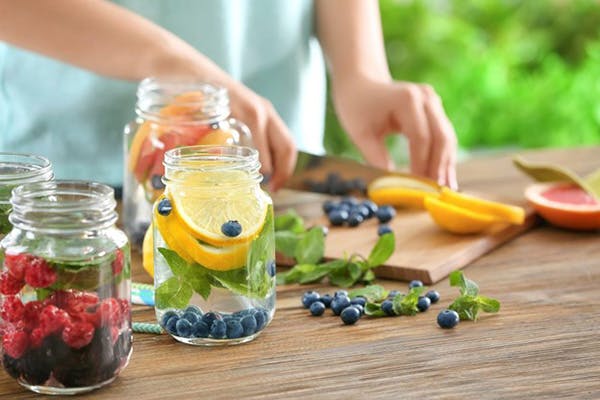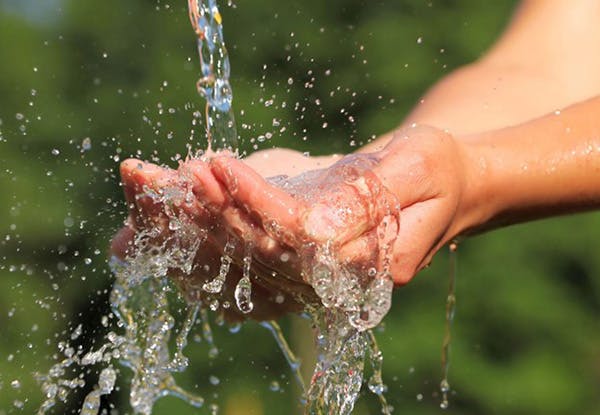January 2023
How to Find the Best Water Purifier for Home Use
Home water purification is as old as civilization. Ever since the first people boiled some water on the community fire, we’ve had home water purification systems. The methods have changed over the years, but the goal is the same. We want safe, clean, delicious water at arm’s length in our home.
Today, most people from developed countries just have to turn a knob to get fresh, clean, potable water. Like our ancestors who started with fire and got us all the way to indoor plumbing, we need to keep setting higher standards for ourselves. As much of a miracle as our tap is, it’s not perfect. The water may still be loaded with contaminants from the earth, from pipes, and even from the chemicals the water is treated with.
How do we make it better? By using the best water purifier for home.
What Is the Best Water Purifier for Home Use?
There’s a lot to consider when deciding on the best water purification system for your needs. What contaminants do you need to filter out and at what point in the process do you want to filter them out are two important questions to consider.
Point-of-use (POU) filters are installed at the last stop on your tap water's journey from its source to your glass. Under-counter filters, water filter pitchers, and faucet-mounted filters are the most common ones people use at home. While these are all considered point-of-use filters, the experience you get from each of these options will vary greatly.
Pitcher filters seem cheap at first but they usually require more filter replacements than people realize. This means more cost, more labor, more waste, and a less-satisfying experience overall. Oh, and don’t forget to keep the pitcher full.
Pitchers also filter out fewer types of contaminants than their under-counter, multi-stage cousins. While they do improve water’s taste and odor, most don’t remove the more dangerous contaminants like arsenic.
Point-of-entry (POE) filters begin working at the spot where your tap water supply first flows into your home. These whole-house water filter systems ensure that all of your water is treated to remove or reduce contaminants like microbes, heavy metals, and sediment. The water you shower and wash your clothes with is just as pure as what fills your cup.
What Are the Pros and Cons of Filtered Water?
Before you purchase and install a home water filtration system, you should consider the pros and cons. Let's take a look at the potential drawbacks to installing a water filter system in your home.
Lack of Regulation
Even though the Environmental Protection Agency (EPA) develops and maintains federal standards for municipal water quality in the United States, there's no federal regulation of home water filtration systems. That means you could purchase a water purifier that isn’t as effective as it says it is.
Luckily there are private rating agencies that protect you against bad actors. The National Sanitation Foundation (NSF) has created standards and protocols that set minimum safety requirements for home water filters in the U.S.
The NSF is certified by the American National Standards Institute (ANSI), to test and certify water treatment systems, so you can shop for the best water filters with confidence. Getting NSF certified is voluntary, but we make sure our HomeWater filtration systems use high-quality, NSF certified parts.
Maintenance
Installing a home water filtration system will improve your water quality, but water purifiers require some upkeep. Knowing when and how to change your water filters is vital to making sure they operate properly and last. Not sticking to a maintenance schedule or using the wrong replacements can shorten the life of your water purifier and give you subpar results.
The service cycle of a water purifier depends on the type of filter it uses and its filter’s life. Some water filters need changing after a certain period of time, while others are measured by the amount of water they process. With mechanical filters, you may have to watch for changes in the flow rate of the water — a slower flow rate might mean the pores of the filter are blocked and it’s ready to be replaced.
Our most affordable American-made, 2-stage under-counter filter has our patented EZChange system to make filter changes a breeze. We recommend changing the filters just once every six months under normal use to keep your clean water flowing at a generous 1 gallon per minute (gpm).
Incomplete Filtration
Not all water filter systems are effective at removing every type of contaminant from your tap water. Different filter technologies are better at different things. If a water quality report indicates your tap water has high levels of lead, for instance, the EPA recommends using distillation, a reverse osmosis system, or certain carbon filters. But if you also need to remove pesticides from your tap water, you'll need the proper carbon filter, while arsenic requires a filter that uses adsorptive media.
It's important to know what kind of filter removes the impurities and contaminants you're trying to get rid of, so you can be sure your chosen water purifier for home use will bring clean water through your faucet.
It might sound daunting but we make it easy for you. Two of our best-selling water filtration systems are our whole-home 4-stage system and our under-sink 4-stage system with reverse osmosis. Putting your water through four stages of filtration makes these the ultimate in water filters. They filter out lead, fluoride, herbicides, PFAS, pesticides, heavy metals, VOCs, chlorine, chromium, and so much more. This makes sure that great-tasting water is all that comes through your tap.
What Are the Advantages of Filtered Water?
Purified water can satisfy your thirst for great-tasting refreshment, but it also benefits your home appliances, your health, and your wallet.
Healthy Hydration
Drinking water is linked to many health benefits, including improved joint health, regulated body temperature, and healthier skin. With filtered water, you can experience those health benefits while also avoiding potentially harmful contaminants.
As your tap water travels from its source to your faucet, it can pick up heavy metals, sediment, and other unwanted contaminants, like germs. Chlorine and chloramine may be added to your water supply to remove harmful bacteria, and some people are sensitive to these disinfectants. Drinking water with excessive chloramine can cause eye and nose irritation, stomach discomfort, and anemia.
The right water filter can remove nearly all of the contaminants you want to keep out of your glass. The HomeWater 4-Stage Whole Home Filter, for instance, reduces chlorine in your water by 97% and reduces dissolved heavy metals by 98%. It also removes rust, dirt, and volatile organic compounds (VOCs), so you can hydrate with confidence.
Less Money and Waste
Of course, installing a water filter system isn't the only way to drink clean water. Buying bottled water can provide you with purified drinking water for your home, but this approach can be costly — for you and for the environment.
There's no getting around the fact that bottled water is expensive. According to Harvard University's Office for Sustainability, bottled water costs 3,000% more per gallon than tap water. The Beverage Marketing Corporation reports that the average cost of a gallon of bottled water in the U.S. was $1.17 in 2020. If you allow for half a gallon of water per person, which is a bit less than the suggested daily amount for most adults, a family of four would spend at least $854 on just 730 gallons of bottled water per year.
Compare that to our easy-to-install 2-stage under-counter filter that costs just $170 and provides you with 4,000 gallons before you have to change the filter. No trips to the store, no lugging jugs, and no plastic waste to litter the landfills. Just turn on the tap and enjoy.
No More Hard Water
Chemicals and bacteria aren't the only things that you may want to filter out of your tap water. High levels of calcium and magnesium can cause problems around your home.
Water with high levels of these minerals, or total dissolved solids (TDS), is considered hard water and it can damage your appliances, cause unsightly buildup around your faucets, and lower your water pressure due to clogged pipes. Over time, hard water can shorten the lifespan of your appliances and even your clothes.
For just a few hundred bucks, you can add a salt-free water softener and water conditioner to our 4-stage whole-home water filtration system and say goodbye to hard water for good.
How Do You Select Water Purification?
The right water purifier for home use depends on the quality of your tap water and your goals. If you want to filter all of the water you use at home, you'll need a different system than if you're only interested in filtered drinking water. Also, the contaminants you want to reduce or remove will determine the method of filtration you need.
What Are the 3 Types of Water Filters?
The three main categories of home water filtration systems are:
- Water filter pitchers
- Under-sink filters
- Whole-house filtration systems
The best water purifier for home use depends on your needs, flexibility, and budget. If you’re renting a house or living in a condo, for instance, you might not be allowed to have a plumber install a whole-house water filtration system, so a water filter pitcher or an easy-to-install under-counter option might be best for you.
Or if you're dealing with hard water that's damaging your plumbing and appliances, you should be filtering all of the water that enters your home, not just your drinking water.
What if I Have Lead in My Water?
Another consideration might be lead in your water. In many older homes, the plumbing might contain dangerous lead. In this case, a whole-home filter would do little good since the water is picking up the lead after it passes the filter. If you’re worried your pipes may be contaminating your water with lead, have your water tested immediately. If positive, opt for a point-of-use filter that removes lead, like our 4-stage under-counter system with reverse osmosis.
What Should You Check Before Buying a Water Purifier?
Buying a water purifier for home use doesn't have to be an overwhelming process. There are some important decisions to make and information to gather, but once you have a plan in place, you'll be able to find and install the right system for your needs.
- Know what's in your water. The EPA requires water companies to send their customers an annual Consumer Confidence Report (CCR) about their water quality. You can also do your own water test. Call the EPA's Safe Drinking Water hotline at 800-426-4791 to find state-certified testing labs, where you may be able to get low-cost or free testing kits.
- Decide what contaminants you want to filter out. Once you know what contaminants are in your tap water and at what levels, you can decide on the best filtration method for your water purification system.
- Determine if you want to filter only your drinking water or install a whole-house filtration system. If you’re mostly concerned about the water you and your family are drinking, you might be happy with an under-sink filter system or a water filter pitcher. But if you have hard water causing damage to your plumbing and home appliances, or if the levels of toxic contaminants make bathing a concern, consider a point-of-entry water purifier for home use.
- Purchase and install your home water filtration system, as well as any replacement filters you need for the upcoming service cycle. Be prepared to replace your filters so you don't put off this important step. HomeWater can ship them to you automatically every three or six months.
- Keep track of when you need to change your filters so your water purifier can continue to bring clean water into your home.
Finding a Great Water Purifier for Home Can Be Easy
At HomeWater, we understand the world of water filtration can seem confusing and high stakes. That’s why we’ve tried to make everything as easy and straightforward as possible. From making our water filters in the USA, to keeping a small catalog of products we feel best meet your needs, everything we do is to help you make an easy choice you feel good about.
If you own your house and want all your taps and appliances putting out clean, filtered water, check out our 4-stage filter, whole-house filtration system with optional salt-free water softener. If you want the ultimate protection for your kitchen sink, our under-counter 4-stage filtration system with reverse osmosis is right for you.
And if you just want great water on a budget with no fuss and almost no maintenance, our 2-stage under-sink option can be installed in 15 minutes with no kitchen alterations required.


